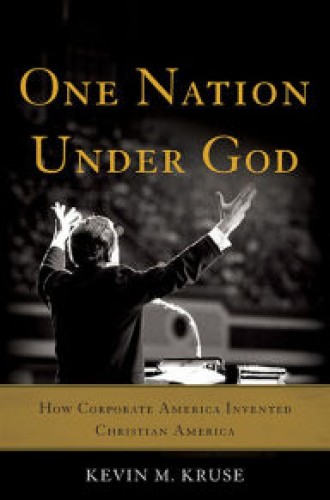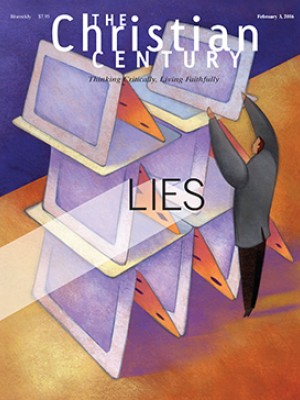Capitalism and faith: A tangled history
Tracking the historical lineage of a movement or an ideology is seldom easy, but untangling the origins of the American baptism of free-market capitalism has been especially fraught. Max Weber famously suggested that Protestant anxiety over election, coupled with the Calvinist aversion to conspicuous consumption, created conditions conducive to the “spirit of capitalism.” But the teachings of Jesus—blessedness of the poor, care for the least of these—hardly lend themselves to an apology for capitalism. And the book of Acts suggests that the earliest Christians were socialists, although that designation should be understood in a context shorn of socialism’s 20th-century statist distortions.
Building their case from scripture, evangelical reformers in the 19th and early 20th centuries excoriated capitalism as inherently inconsistent with the mandates of the New Testament. Charles Grandison Finney, the most influential evangelical of the 19th century, exalted Bible societies as models for commerce and opined that Christian businessman is an oxymoron because capitalism necessarily elevates avarice over altruism. During the Progressive Era, Protestants—the liberal Social Gospel theologians as well as the redoubtable William Jennings Bryan—sought to protect workers from the ravages of unbridled capitalism.
Read our latest issue or browse back issues.
The Protestant embrace of capitalism appears to have evolved over the past century or so, and its comprehensiveness is evident in everything from sermons to stump speeches. To give just one example, in Listen, America! Jerry Falwell wrote that “the free enterprise system is clearly outlined in the Book of Proverbs.” But how did we get here? Several books in recent years have illuminated this evolution. Darren Dochuk’s From Bible Belt to Sunbelt traces the movement of evangelicals from Oklahoma, Arkansas, and Texas to work in the defense industries of southern California. The Family, Jeff Sharlet’s worthy though occasionally hyperbolic study of the Fellowship Foundation, shows linkages between Christian businesspeople and politicians. Bethany Moreton’s To Serve God and Wal-Mart should also be added to the roster.
And now Kevin Kruse adds his take on the process in One Nation Under God. Kruse’s narrative goes something like this: after the Bolshevik Revolution discredited the Social Gospel, capitalists faced an even more formidable challenge in Franklin Roosevelt’s New Deal. Organizations such as the National Association of Manufacturers responded by enlisting friendly clergy, including James W. Fifield Jr. of the First Congregational Church in Los Angeles, in their campaign of “Christian libertarianism.” Fifield, sometimes known as “the Thirteenth Apostle of Big Business or the St. Paul of the Prosperous,” was a willing shill, and he used his organization Spiritual Mobilization to sound the alarm about “pagan statism.” Other ministers and businesspeople, including Norman Vincent Peale and J. Howard Pew, climbed aboard, and this unlikely coalition, abetted by the J. Walter Thompson advertising agency and an endless supply of money, made the case that Christianity condemns socialism in all of its guises, including the minimum wage, Social Security, and veterans benefits.
The Committee to Proclaim Liberty enlisted still more clergy to perform the marriage between capitalism and Christianity, and by the dawn of the Eisenhower administration, all of this had somehow morphed into a kind of Christian nationalism (Kruse is less clear on this point). Billy Graham played a key role, once opining that the Roosevelt and Truman administrations were a time of “spiritual drought” and suggesting that the Garden of Eden was a place with no union dues and no labor leaders. “I believe that organized labor unions are one of the greatest mission fields in America today,” the evangelist declared.
Eisenhower himself, the only president baptized while in office, very nearly embodied what Eugene Rostow called “ceremonial deism.” Kruse quotes Eisenhower’s famous line about government founded on religious faith—“and I don’t care what it is”—and notes that the new president directed that cabinet meetings be opened in prayer (although he often forgot to do so). The National Prayer Breakfast was instituted just weeks into Eisenhower’s presidency, and before long, at Eisenhower’s behest, Congress fell over itself to insert “under God” into the Pledge of Allegiance and to emblazon “In God We Trust” on coins and currency. Eisenhower, Kruse writes, “succeeded in sacralizing the state, swiftly implementing a host of religious ceremonies and symbols and thereby inscribing—quite literally, in many ways—an apparently permanent public religion on the institutions of American government.”
The remainder of the book is a tale of overreaching and reaction. Not content with references to the deity on the nation’s currency, several members of Congress sought to revive Lincoln-era efforts to designate the United States as a Christian nation. The most arresting account is that of the Becker Amendment. Following the school prayer decisions of the early 1960s, the proposed amendment in favor of school prayer enjoyed overwhelming popular and congressional support, and were it not for the delaying tactics of Emanuel Celler, chair of the House Judiciary Committee, the amendment would almost certainly have passed Congress and headed to the states for ratification. By the time Celler had completed his hearings, public sentiment had shifted, and the bill died. Other, similar efforts foundered as Americans came to their senses about the genius of the First Amendment and faced up to the emerging realities of pluralism.
Or did they? Kruse suggests, plausibly, that the religious right drew at least some of its energy from popular resentment over the loss of Christian hegemony, which they believed had existed in Eisenhower’s America. It is certainly true that by the late 1970s leaders of the religious right added lamentations about secularism and the absence of prayer in schools to their complaints about abortion and the loss of tax exemptions for racially segregated institutions. By the 1980s this unlikely fusion of Christianity, free-market capitalism, and Christian nationalism had emerged as a powerful movement, and that movement continues to define the political landscape in the United States.
Although the alliance between conservative politics and Christian nationalism is by now an old and oft-told story, the looping of free-market capitalism into that coalition is still puzzling. Unfortunately, Kruse’s account relies more on correlation than causation. But perhaps that’s sufficient. After all, who was financing all of these efforts to promote ceremonial deism and Christian nationalism? Who paid the costs for Spiritual Mobilization, the Religion in American Life advertising campaign, the National Prayer Breakfast, or Honor America Day? The roster reads like a who’s who of the Fortune 500, with names like oil executive Sid Richardson, James L. Kraft of Kraft Foods, J. C. Penney, Harvey Firestone, Conrad Hilton and J. W. Marriott of hotel fame, Charles E. Wilson of General Electric, Walt Disney, and Robert W. Boggs of Union Carbide.
These contributors could hardly be described as innocents. They expected a return on their investment, and, as Kruse demonstrates, they found no shortage of politicians willing to fly in the face of history to assert that the United States is a Christian nation, and no shortage of clergy willing to fly in the face of scripture to baptize free-market capitalism.







